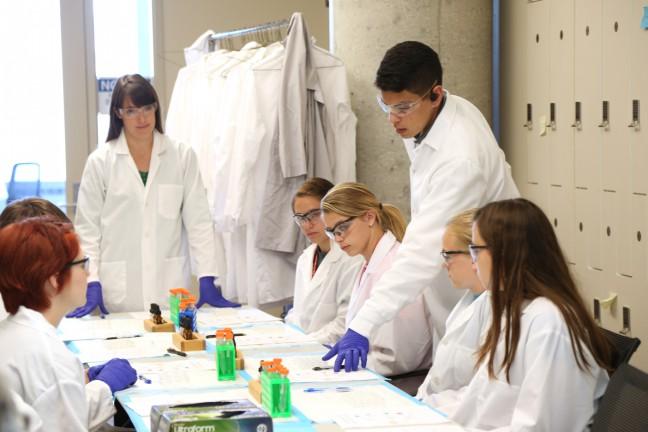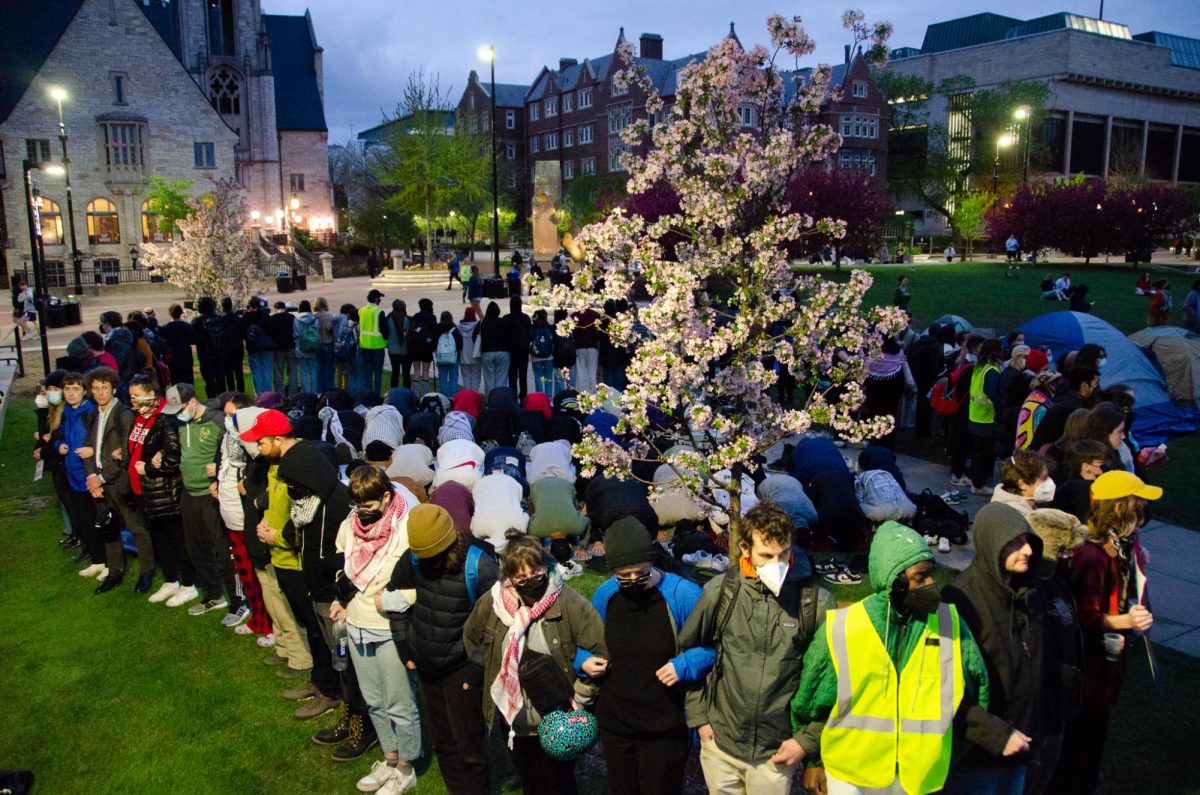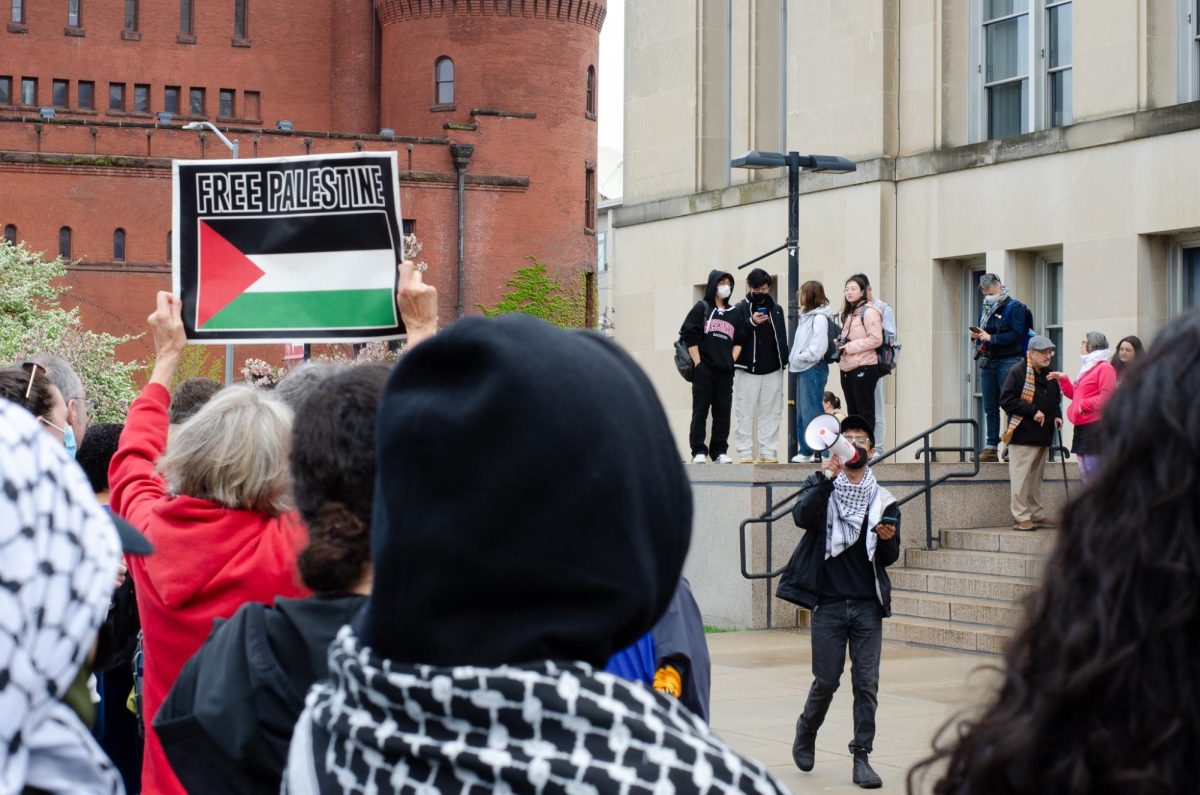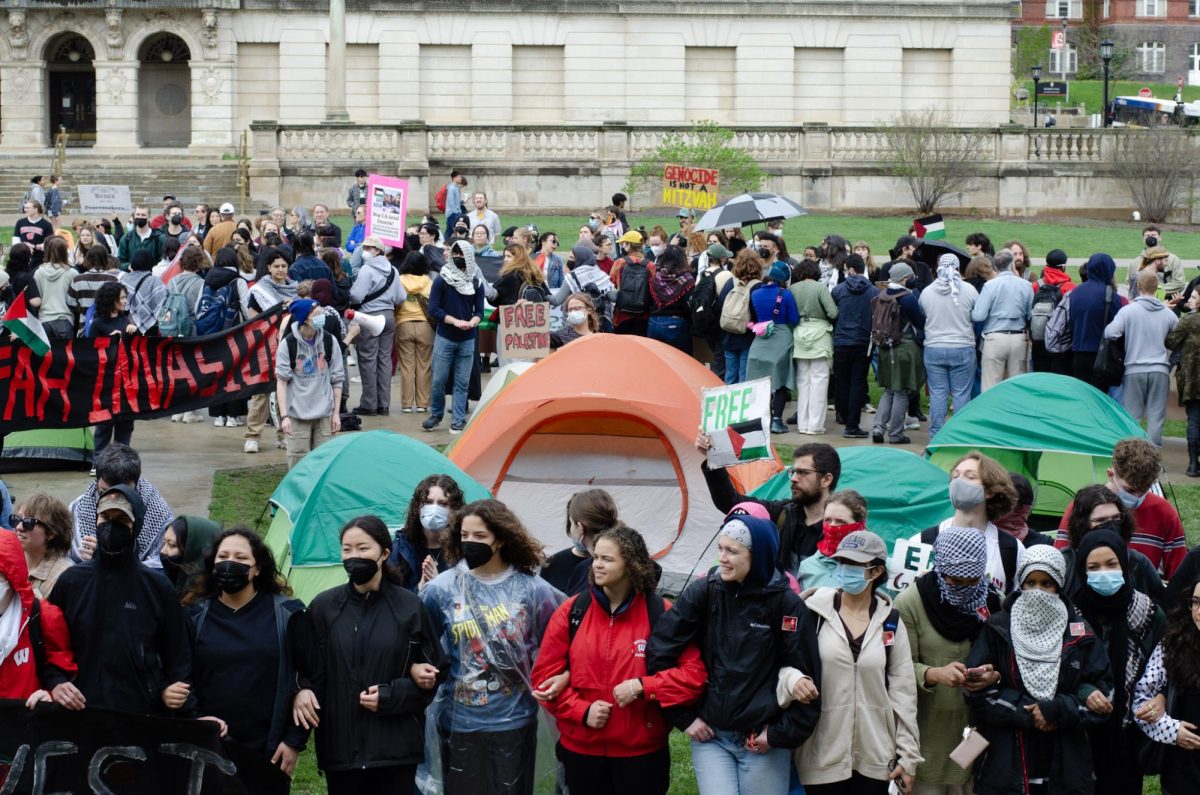A new student organization is looking to inspire a love of science in middle school students around Madison by connecting them with University of Wisconsin student mentors.
The student organization, which UW junior Seah Buttar launched this semester, branches off an existing program, Adult Role Models in Science. ARMS is a collaboration between WISCIENCE and the Kiwanis Club of Downtown Madison that was created in 1990 to connect youth with area scientists.
When she first stepped on campus as a freshman, Buttar said she knew she wanted to continue the commitment to volunteering she developed in high school.
Buttar approached the Morgridge Center for Public Service. With her desire to volunteer and her intentions to pursue medicine, the center pushed Buttar to enroll in Biology 375, a service learning course dedicated to engaging elementary and middle school students in science.
Biology 375 is actually an extension of UW’s ARMS program, course instructor Dolly Ledin said. Ledin, ARMS director, said the program pulls on a network of scientists in the area, from the Department of Natural Resources to UW researchers and professors, and connects them with students around Madison.
Many students come from backgrounds that didn’t provide science role models in their lives, Buttar said. ARMS focuses on filling in that gap to build the confidence in kids that they can do science.
Buttar, who has enrolled in Biology 375 every semester, has become something of a co-instructor to Ledin in the course, helping to coordinate volunteer opportunities and lesson plans.
Buttar’s involvement in the class inspired her to launch a student chapter of ARMS to expand the mentorship opportunities beyond the structure of the biology course.
Stanford professor on how to bring interest in science all over the world
Just like the Biology 375 class, students interested in the ARMS student chapter don’t have to be pursuing STEM majors, Buttar said. Some mentors are pursuing degrees in education, others have an interest in working with kids.
“We do a lot of STEM-related majors here who don’t necessarily know how to teach science, and that’s something I definitely struggled with, too,” Buttar said. “You don’t know how much first graders know, sometimes they know way more than you or ask questions that you definitely don’t know the answer to.”
In any given week, Buttar said, about 20 students volunteer through the ARMS student chapter in some capacity.
Buttar said running ARMS as a student organization simply takes setting up the opportunities for students to work with area elementary, middle school and community centers looking for mentorship in science for their students.
Surprisingly, Buttar said, part of her job as a volunteer in the classrooms has just been teaching the teachers how to feel comfortable instructing the students in science. At the elementary level Wisconsin doesn’t require the instruction of science and so many of the teachers don’t have experience planning lessons around science to engage students.
Science is oftentimes neglected because the teachers are teaching to the explicit benchmarks students are expected to meet in other subjects, like reading and math, Buttar said.
For students who don’t do well in subjects like reading or math, science gives them a chance to learn with a hands-on approach, Buttar said. And, Buttar explained, some students with behavioral issues work well in groups because they can bounce ideas off each other and end up excelling in science.
From the Amazon to Madison, new science writer in residence talks power of observation
When she was initially enrolled in the service learning course the fall semester of her Freshman year, Buttar said her motivation to re-enroll in the course came after one particularly poignant experience while tutoring a group of students in an after school program.
To introduce the subject of science, Buttar said she asked a group of students, what they thought a scientist was.
“I was expecting [them to say] ‘plant people,’ ‘doctors,’ ‘dentists,’ ‘astronauts,'” Buttar said.
But one of the student’s response was “white.”
This pushed Buttar to continue to be involved in ARMS. To Buttar, it’s important all students feel like they can pursue a career in science, uninhibited by stereotypes.
“You can hear about these things and you know that there’s disparity, in the STEM fields especially, but then to actually experience that really motivated me to care and want to change that so that no kid would say something like that [again].”

















